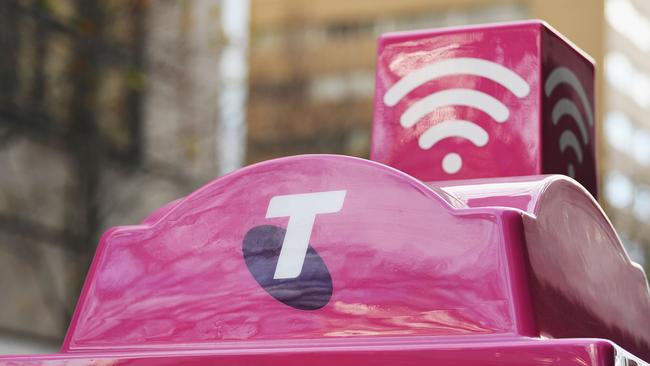Coronavirus: Home network use surge taxes Telstra
Telstra has admitted its network is experiencing congestion as more users flock to their homes.

Telstra has admitted its network is experiencing congestion as more users flock to their homes.
“When trying to place a call on our network, you may have heard a message about congestion,” Telstra says in a tweet.
“Due to the growing number of people working from home, we’re seeing congestion impacting 3-4 per cent of calls on our mobile network.”
Self-isolation is seeing more people working at home, school students are using online learning and there are usage spikes with more families entertaining themselves by watching streaming services such as Netflix.
The Australian reported last week that Netflix was looking at reducing its internet stream quality to deal with higher demand. Telstra also called on users to moderate internet use as pressure mounts on telco infrastructure.
However, the latest problems seem more related to the high number of people calling government services on the mobile network rather than internet congestion.
“Most of the congestion is being driven by the high number of calls to government 13 and 1800 numbers. There is no impact on data usage,” Telstra says.
The telco said it was working with Optus to fast-track upgrades to interconnection points.
“Yesterday, we made good progress to improve things in the short term, which has allowed us to manage the higher call volumes,” Telstra said.
“We know this is frustrating. Thanks for your patience in what is a challenging time for us all.”
Some people, however, are experiencing a drop in their internet speed. “My NBN speed has halved, still usable but a bit slow loading pages, “ one user said on Twitter.
Most of the congestion is being driven by the high number of calls to Government 13 and 1800 numbers. There is no impact on data usage at this stage.
— Telstra (@Telstra) March 24, 2020
However, the NBN said its network was congestion-free despite increased demand. “The NBN access network is operating as normal and has not experienced any congestion issues,” an NBN Co spokesperson said.
“NBN Co is closely monitoring the network and will work with internet providers to address any potential demand surges as quickly as possible.”
The spokesperson said daytime traffic was tracking about 50 per cent lower than the peak load on the network during the Saturday evening busy hour.
“The network has a well-paced augmentation plan to keep ahead of growth in data demand, and as a result the NBN continues to perform well.
“Last Wednesday, we also introduced the additional 40 per cent (CVC) capacity boost at no extra cost, which is available to internet retailers now.”
Optus told The Australian it had observed a roughly 10 per cent increase across voice calls, SMS and data usage, compared with the same period last week, but it was coping with the extra call load.
“The additional load on our network is well within manageable limits and we have room for it to grow further. However, we continue to closely monitor our network and collaborate with other carriers and online streaming companies to ensure we are ready to deliver extra capacity.”
A Vodafone spokesperson said its mobile and fixed networks were well-equipped to manage additional traffic during the day. “Our teams are working around the clock to ensure we keep customers connected.
“Over the past week, we have seen very substantial growth in mobile voice calls and voice-over-Wi-Fi services.”
Vodafone said its NBN data consumption had substantially increased across Australia.



To join the conversation, please log in. Don't have an account? Register
Join the conversation, you are commenting as Logout